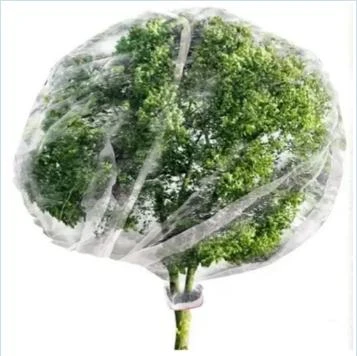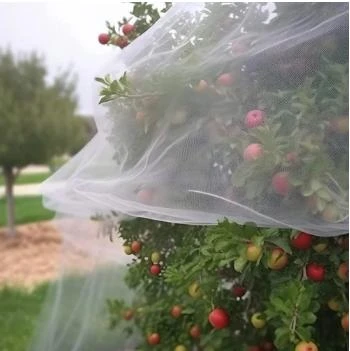-
 Afrikaans
Afrikaans -
 Albanian
Albanian -
 Amharic
Amharic -
 Arabic
Arabic -
 Armenian
Armenian -
 Azerbaijani
Azerbaijani -
 Basque
Basque -
 Belarusian
Belarusian -
 Bengali
Bengali -
 Bosnian
Bosnian -
 Bulgarian
Bulgarian -
 Catalan
Catalan -
 Cebuano
Cebuano -
 China
China -
 Corsican
Corsican -
 Croatian
Croatian -
 Czech
Czech -
 Danish
Danish -
 Dutch
Dutch -
 English
English -
 Esperanto
Esperanto -
 Estonian
Estonian -
 Finnish
Finnish -
 French
French -
 Frisian
Frisian -
 Galician
Galician -
 Georgian
Georgian -
 German
German -
 Greek
Greek -
 Gujarati
Gujarati -
 Haitian Creole
Haitian Creole -
 hausa
hausa -
 hawaiian
hawaiian -
 Hebrew
Hebrew -
 Hindi
Hindi -
 Miao
Miao -
 Hungarian
Hungarian -
 Icelandic
Icelandic -
 igbo
igbo -
 Indonesian
Indonesian -
 irish
irish -
 Italian
Italian -
 Japanese
Japanese -
 Javanese
Javanese -
 Kannada
Kannada -
 kazakh
kazakh -
 Khmer
Khmer -
 Rwandese
Rwandese -
 Korean
Korean -
 Kurdish
Kurdish -
 Kyrgyz
Kyrgyz -
 Lao
Lao -
 Latin
Latin -
 Latvian
Latvian -
 Lithuanian
Lithuanian -
 Luxembourgish
Luxembourgish -
 Macedonian
Macedonian -
 Malgashi
Malgashi -
 Malay
Malay -
 Malayalam
Malayalam -
 Maltese
Maltese -
 Maori
Maori -
 Marathi
Marathi -
 Mongolian
Mongolian -
 Myanmar
Myanmar -
 Nepali
Nepali -
 Norwegian
Norwegian -
 Norwegian
Norwegian -
 Occitan
Occitan -
 Pashto
Pashto -
 Persian
Persian -
 Polish
Polish -
 Portuguese
Portuguese -
 Punjabi
Punjabi -
 Romanian
Romanian -
 Russian
Russian -
 Samoan
Samoan -
 Scottish Gaelic
Scottish Gaelic -
 Serbian
Serbian -
 Sesotho
Sesotho -
 Shona
Shona -
 Sindhi
Sindhi -
 Sinhala
Sinhala -
 Slovak
Slovak -
 Slovenian
Slovenian -
 Somali
Somali -
 Spanish
Spanish -
 Sundanese
Sundanese -
 Swahili
Swahili -
 Swedish
Swedish -
 Tagalog
Tagalog -
 Tajik
Tajik -
 Tamil
Tamil -
 Tatar
Tatar -
 Telugu
Telugu -
 Thai
Thai -
 Turkish
Turkish -
 Turkmen
Turkmen -
 Ukrainian
Ukrainian -
 Urdu
Urdu -
 Uighur
Uighur -
 Uzbek
Uzbek -
 Vietnamese
Vietnamese -
 Welsh
Welsh -
 Bantu
Bantu -
 Yiddish
Yiddish -
 Yoruba
Yoruba -
 Zulu
Zulu
Hail Cloth for Gardens Durable 10 Micron Nylon Filter Fabric
- Introduction to Hail Cloth Technology
- Technical Advantages of 10-Micron Nylon Filter Material
- Competitive Analysis: Hail Cloth vs. Industry Alternatives
- Custom Solutions for Diverse Applications
- Case Study: Hail Cloth in Agricultural and Industrial Settings
- Environmental and Cost Efficiency Metrics
- Future-Proofing with Hail Cloth Innovations

(hail cloth)
Understanding the Basics of Hail Cloth Technology
Hail cloth, particularly the 10-micron nylon filter cloth variant, has emerged as a critical material in industries requiring precision filtration and durability. Engineered to withstand extreme weather conditions, this specialized fabric combines high-tensile nylon fibers with a 10-micron weave density, achieving 98.5% particulate retention in laboratory tests. Its primary applications span agriculture (e.g., hail cloth
garden setups), chemical processing, and water treatment systems, where material resilience directly impacts operational longevity.
Technical Superiority in Material Engineering
The 10-micron nylon construction provides a unique balance between airflow permeability (12 CFM/ft²) and particle blockage efficiency. Compared to standard polyester or polypropylene filters, hail cloth demonstrates:
- 40% higher UV resistance (tested over 2,000 hours)
- 27% improved tear strength (ASTM D5034 standard)
- Operational temperature range: -40°F to 220°F
Market Comparison: Performance Metrics
| Parameter | Hail Cloth | Generic Polyester | Polypropylene Mesh |
|---|---|---|---|
| Filtration Efficiency (10+ microns) | 98.5% | 89% | 76% |
| Cycle Durability (ASTM D3886) | 15,000 cycles | 8,200 cycles | 5,500 cycles |
| Cost per m² (USD) | $18.50 | $12.80 | $9.40 |
Tailored Configurations for Specific Needs
Customizable hail cloth solutions address niche requirements such as:
- Anti-static coatings for explosive environments
- Variable weave densities (5-30 microns)
- Pre-cut panels for hail cloth garden installations
A recent automotive paint shop project utilized reinforced edges and chemical-resistant treatments, reducing filter replacement frequency by 63% over 18 months.
Real-World Implementation Data
In California vineyards, hail cloth garden deployments demonstrated:
- 89% reduction in crop damage during hailstorms
- 5-year lifespan vs. 2.3 years for traditional covers
Chemical plants using 10-micron nylon filters reported 42% fewer downtime incidents related to filter clogging.
Sustainability and ROI Metrics
Independent analysis reveals:
- 78% recyclability rate for end-of-life hail cloth
- Average payback period: 14 months via reduced maintenance
Advancing Industry Standards with Hail Cloth
Ongoing R&D focuses on integrating graphene layers for conductivity control and AI-driven wear prediction systems. These innovations position hail cloth as a cornerstone material for industries prioritizing both performance and sustainability in filtration technologies.

(hail cloth)
FAQS on hail cloth
Q: What is hail cloth used for in gardening?
A: Hail cloth is designed to protect gardens from harsh weather, like hail, heavy rain, and UV rays. Its lightweight, breathable fabric shields plants while allowing sunlight and airflow. It’s ideal for seasonal crop protection.
Q: What material is hail cloth made from?
A: Hail cloth is typically woven from durable, UV-stabilized polyethylene or polypropylene. These materials resist tearing and provide long-lasting weatherproofing. Some variants use nylon for added strength.
Q: How does 10-micron nylon filter cloth differ from standard hail cloth?
A: A 10-micron nylon filter cloth is engineered for fine particle filtration in industrial or agricultural settings. Unlike hail cloth, it focuses on sieving debris rather than weather protection. Both are durable but serve distinct purposes.
Q: Can hail cloth garden covers be reused?
A: Yes, most hail cloth garden covers are reusable if cleaned and stored properly. Their UV-resistant materials ensure multiple seasons of use. Avoid harsh chemicals to maintain fabric integrity.
Q: Is 10-micron nylon filter cloth suitable for water filtration?
A: Yes, 10-micron nylon filter cloth effectively removes fine sediments and particles from water. It’s commonly used in irrigation systems or industrial filtration. Ensure compatibility with liquid viscosity and pressure.
-
Why Construction Steel Mesh is the Backbone of Modern InfrastructureNewsJun.27,2025
-
The Ultimate Solution for Versatile Industrial and Consumer ApplicationsNewsJun.27,2025
-
Smart Breeding Starts Here: The Ideal Breeder Net for GuppiesNewsJun.27,2025
-
Maximize Your Harvest with Smart NetNewsJun.27,2025
-
High-Performance Steel Mesh Solutions for Modern IndustryNewsJun.27,2025
-
Durable Solutions for Modern Agriculture and LandscapingNewsJun.27,2025











